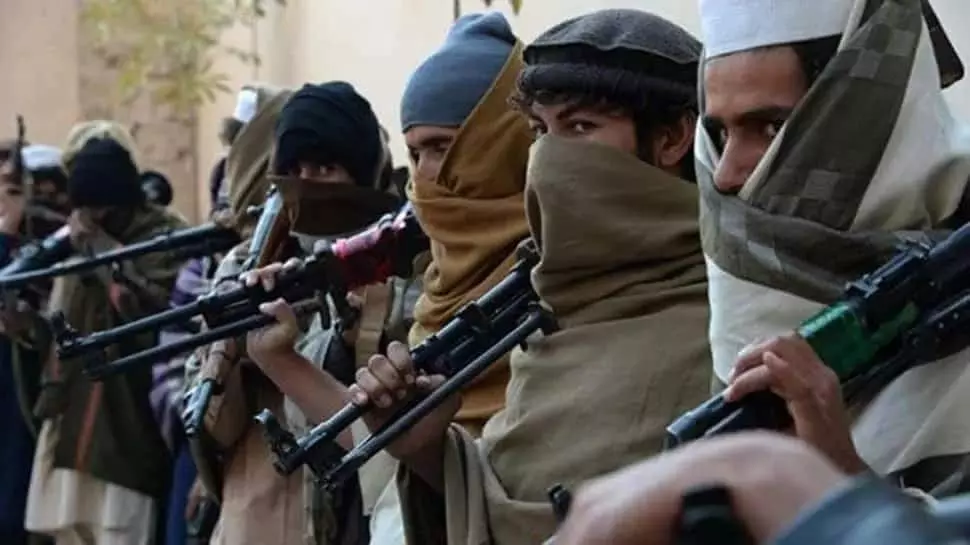Self-inflicted quandary
Rather than blaming Indian agencies for mysterious killings of its home-grown terrorists, Pakistan should realise that the present situation is an outcome of its own misdeeds

There has been no abatement in the spate of recent killings in Pakistan, either by the perpetration of terror by the Tehreek-e-Taliban Pakistan (TTP) or other affiliates operating either from Afghanistan or within the country. Simultaneously, Pakistan is also reeling under a nonstop trend of the assassination of homegrown terrorists who were notorious for their dread as well as for carrying out cross-border terrorism in India, particularly for their complicity in the 26/11 Mumbai terror attacks or in Kashmir or other parts of India. Such slain terrorists mostly belonged to Jaish-e-Mohammed (JeM) or Lashkar-e-Taiba (LeT), both creations of the Pakistani security establishment.
Dwelling upon the slew of patterned terror-linked attacks in Pakistan, on November 26, two civilians lost their lives while 10 others, including three security forces personnel, were injured in a suicide assault in Bannu’s Bakka Khel area. The attack was the latest in a series of terrorist incidents in recent months. The suicide bomber was an Afghan national. The Hafiz Gul Bahadur group took responsibility. This was the 16th suicide attack carried out by Afghan nationals, according to authorities. Significantly, the number of attacks has only gone up since August 2021. Pakistan lodged a strong protest over the use of Afghan soil and also made a list of fresh demands, which included a full investigation into the Bannu attack and stern action against perpetrators and abettors; immediate “verifiable actions” against all terrorist groups and their sanctuaries; arrest of Hafiz Gul Bahadur and his subsequent handover to Pakistan; and assurance on preventing the use of Afghan soil for terrorism against Pakistan.
The Afghan Taliban have so far refused to use force against the banned TTP. Yet, there is no indication that Kabul would change its designs. The Afghan Taliban have cited three main reasons for the lack of action against the TTP. First, the TTP helped the Afghan Taliban fight the US-led NATO forces. Second, it is not the tradition of Afghans to act against their guests. Third, any action against the TTP may compel its members to join ISIS. Thus, the Afghan Taliban feel the best way forward is to hold talks with the TTP. Pakistan, however, does not seem to relent. It is reluctant to talk to the terrorist outfit.
It may be recalled that when Pakistan first entered into talks with the TTP after the Afghan Taliban returned to power, there were some positive movements initially. Brokered by the Haqqani Network, talks led to a ceasefire by the TTP. In return for the truce, Pakistan freed certain TTP members and allowed the return of hundreds of TTP militants as part of confidence-building measures. The move, however, quickly backfired. The returning terrorists soon began targeting security forces. Government figures suggest that there has been a 60 percent increase in terrorist attacks and a 500 percent rise in suicide attacks since the Taliban takeover in August 2021.
In the meantime, the deportation of Afghans from Pakistan to Kabul has further widened the gulf between Afghanistan and Pakistan. This does not show any chances of improvement. Meanwhile, in the sphere of terror-related happenings, unidentified gunmen killed Maulana Raheem Ullah Tariq, a close aide of JeM chief Maulana Masood Azhar, in Karachi. The Karachi police have labeled it as a “targeted killing” and an “act of terrorism.” This incident marks the third high-profile assassination of terrorists linked to November 2008 terror attacks. Earlier, Akram Ghazi, commander of LeT, was gunned down in Pakistan’s KP, and Khwaja Shahid, one of the masterminds behind the 2018 Sunjuwan terror attack in J&K, was abducted and found beheaded near the LoC in PoK. Authorities are currently investigating the involvement of local terrorists and infighting among JeM members in Tariq’s killing.
The recent assassinations have also targeted significant individuals. Akram Ghazi was a top recruiter for LeT between 2018 and 2020, responsible for radicalizing numerous terrorists who infiltrated the Kashmir Valley over the past two years. Similarly, Tariq was known to be a close associate of Masood Azhar. Ghazi was shot dead in Bajaur district. Earlier in September, LeT commander Riyaz Ahmed was killed outside AI Quddus Masjid in Rawalakot, PoK. Ahmed was in charge of Lashkar’s operations and recruitment in the region. Also, in May, Paramjit Singh Panjwar, the wanted terrorist and chief of Khalistan Commando Force, was shot dead by unidentified gunmen.
Other recent killings include Maulana Ziaur Rehman, a LeT operative who was shot dead in Karachi’s Gulistan-e-Jauhar, and Mufti Qaiser Farooq, who was killed at a seminary in Gulshan-i-Umar. JeM terrorist Shahid Latif, the chief handler of the fidayeen squad that attacked the Pathankot airbase in 2016, was also gunned down by unidentified assailants in a mosque in Sialkot, Pakistan (October 10).
Pakistan finds it convenient to blame India and its external intelligence agency for these ‘mysterious’ killings, little realizing or feigning ignorance that such terrorists and the dreaded terror groups are its own creations, which have now assumed monstrous proportions and are completely out of control of the Pakistan security agencies. The nonstop killing trait of terrorists has obviously shaken the confidence of the general populace of Pakistan, who have started questioning the political wisdom and judgment of the political leadership, particularly when the general elections are around the corner. Such anxiety is bound to increase further in the days to come.
The writer is a retired IPS officer, Adviser NatStrat, and a former National Security Advisor in Mauritius. Views expressed are personal



